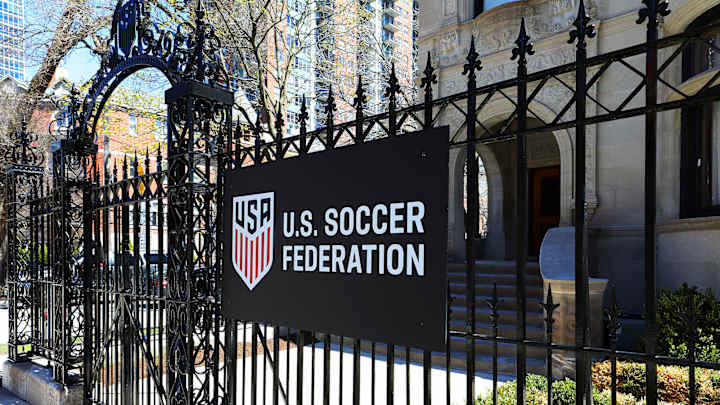U.S. Soccer's Chief Legal Officer Resigns After Controversial Filing

U.S. Soccer's chief legal officer Lydia Wahlke has resigned in the aftermath of the controversial filing against the U.S. women's national team players that drew widespread scrutiny.
The filing, which argued that women's players inherently had less skill and responsibility than men's players, was submitted by U.S. Soccer's outside legal counsel at the time, Seyfarth Shaw, but Wahlke was put on administrative leave following the publication of the argument, which was widely panned and ultimately withdrawn from the record. After an outside review of U.S. Soccer's process that led to the legal strategy, Wahlke has stepped down, though she will provide consulting services to the federation until Sept. 15, according to a USSF statement. The development was first reported by Grant Wahl.
The filing previously led to the resignation of president Carlos Cordeiro, condemnation from his successor, Cindy Parlow Cone, and new CEO Will Wilson and the changing of legal representation for the federation in the gender discrimination case.
“It should be clear that while Carlos Cordeiro did not review or approve of the offensive language in the filing, by personally resigning he decided to put the best interest of U.S. Soccer first,” Parlow Cone said in a statement.
Regardless of the nature of the argument and the outcry that resulted from it, U.S. Soccer was granted a partial summary judgment by the presiding judge, claiming a legal victory on the core element of the case brought by the players.
Wahlke's resignation comes following another legal development for U.S. Soccer, which settled its trademark and naming rights dispute vs. the U.S. Soccer Foundation this week.
U.S. Soccer still has ongoing cases against Hope Solo (gender discrimination), Relevent Sports and the NASL (antitrust), while some elements of the USWNT case are still subject to trial. The players have requested a stay on the trial, which is set for June 16, and for the judge to grant full summary judgment so they can accelerate the appeals process. An appeal cannot occur until all elements of the case are ruled upon, and between the time until the trial and the trial itself, the players are looking to save themselves a few months in an appeals process that could take up to two years to complete.

Avi Creditor is a senior editor and has covered soccer for more than a decade. He’s also a scrappy left back.